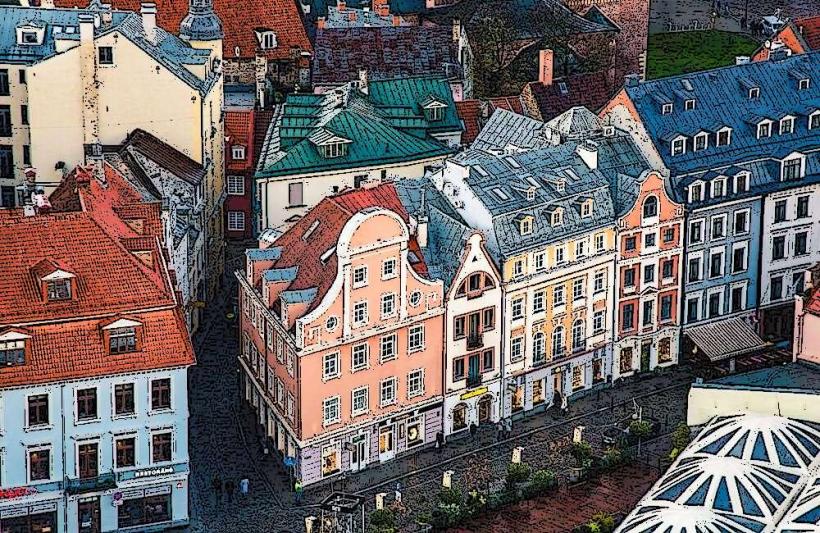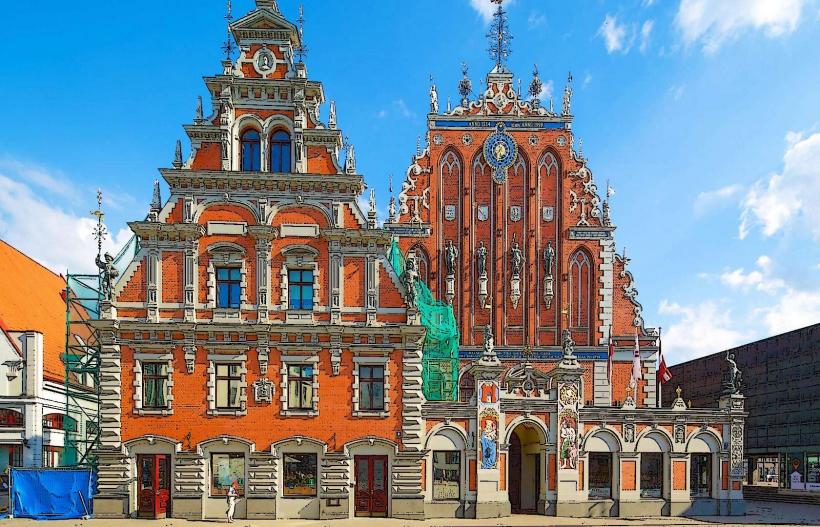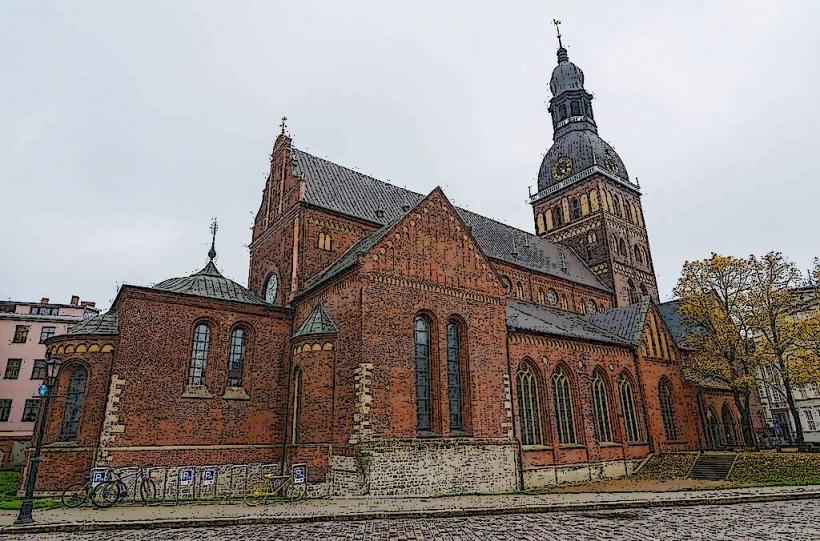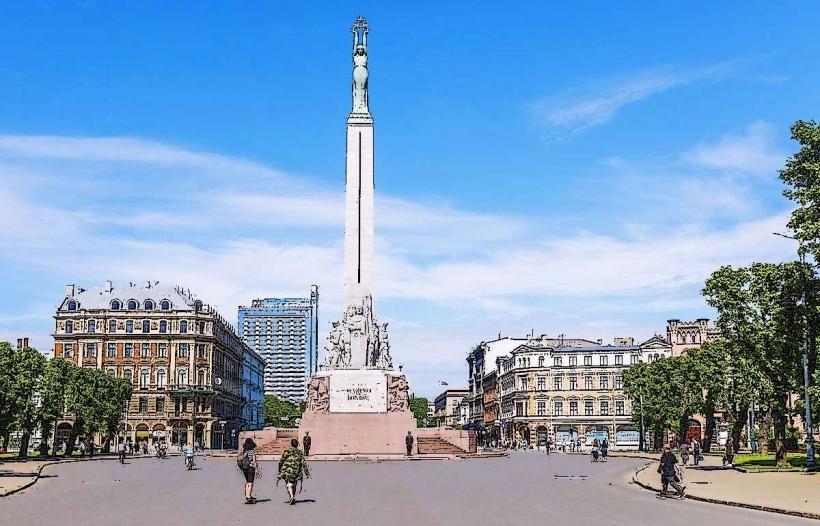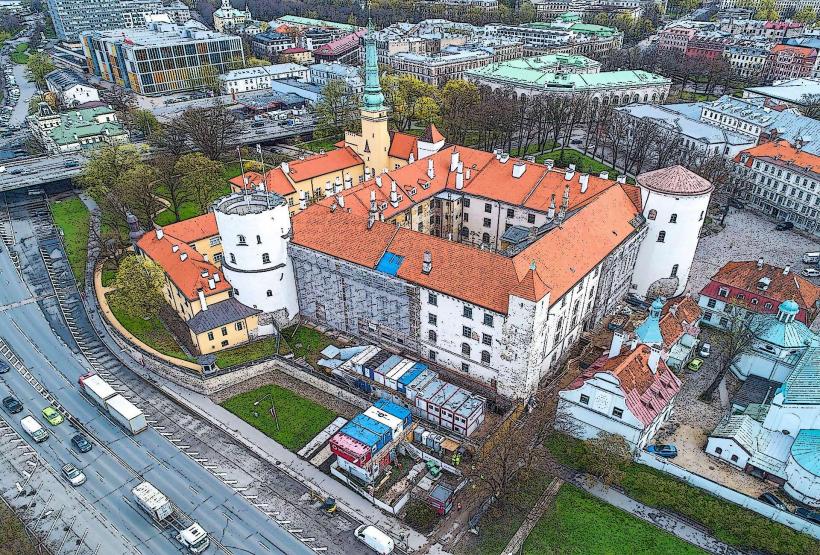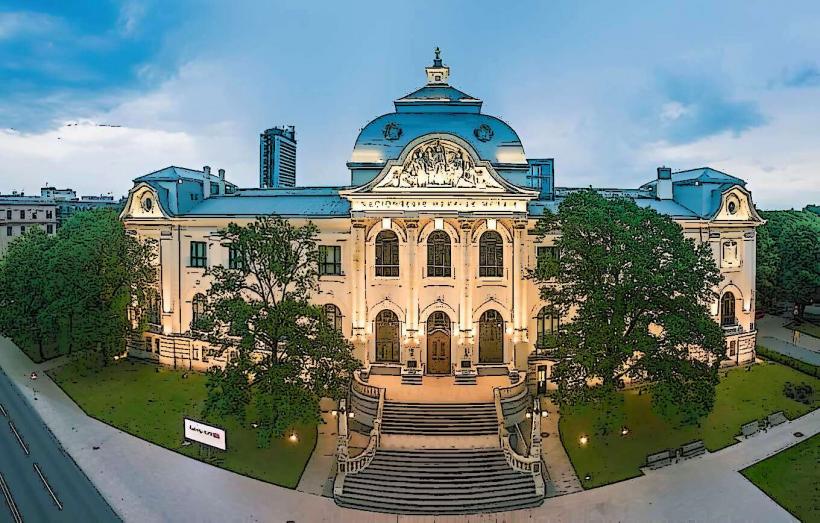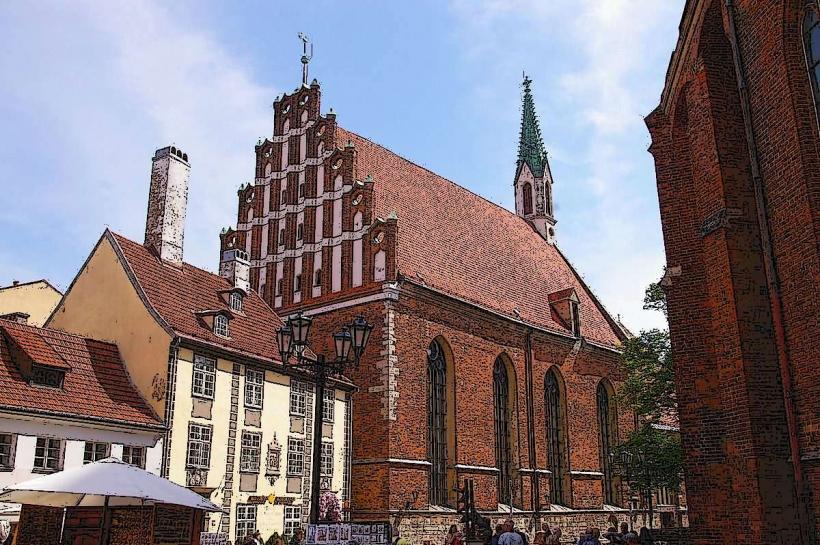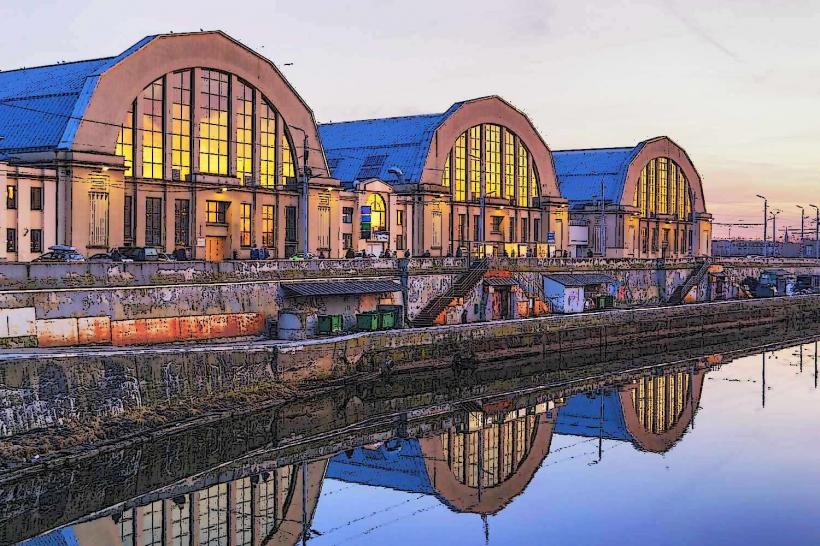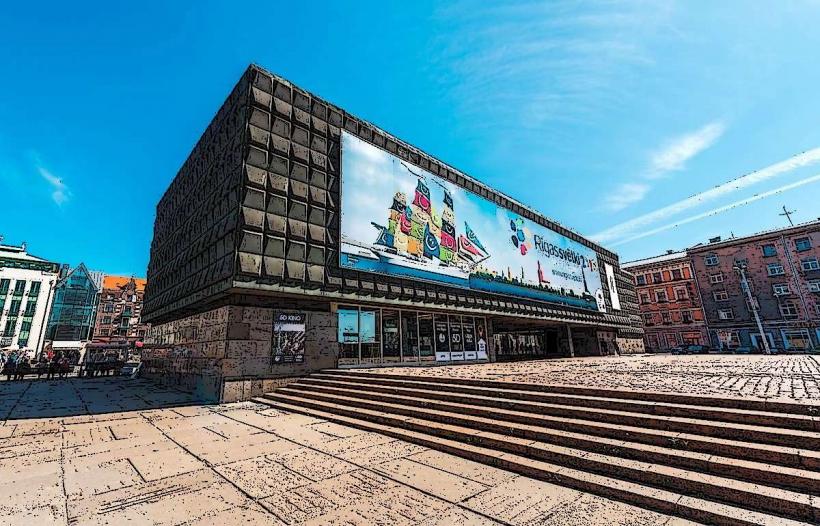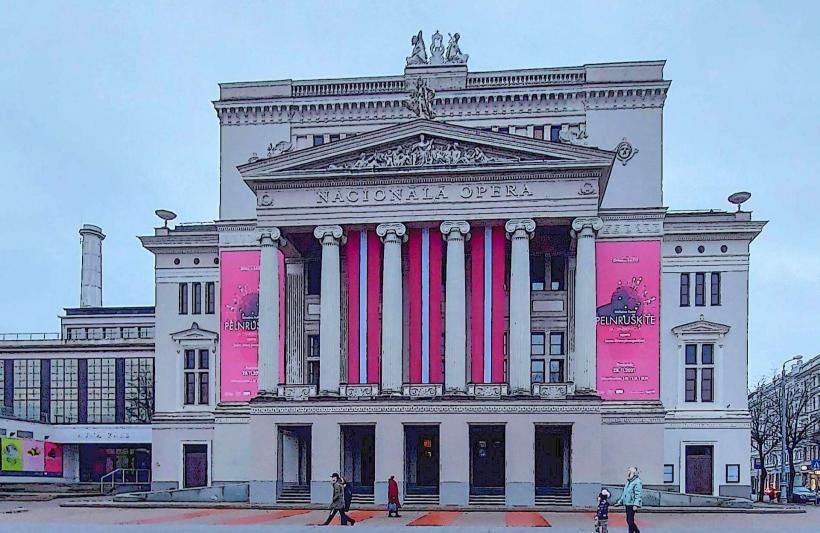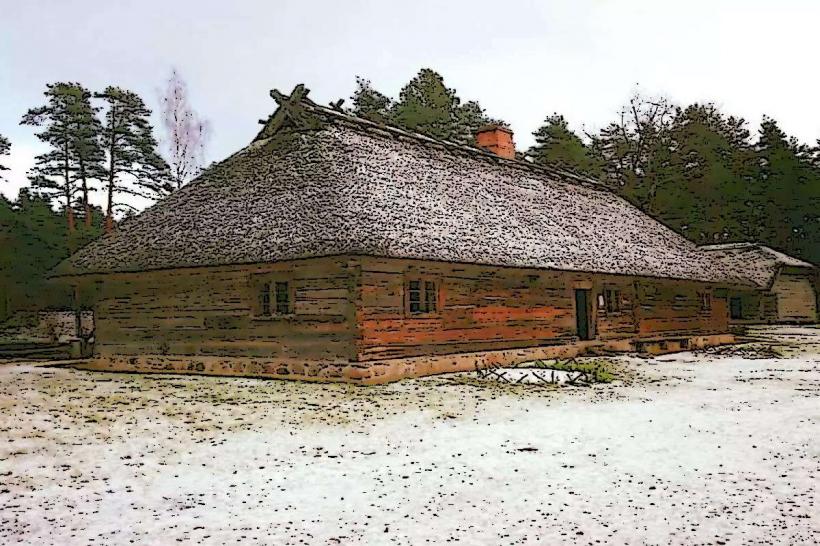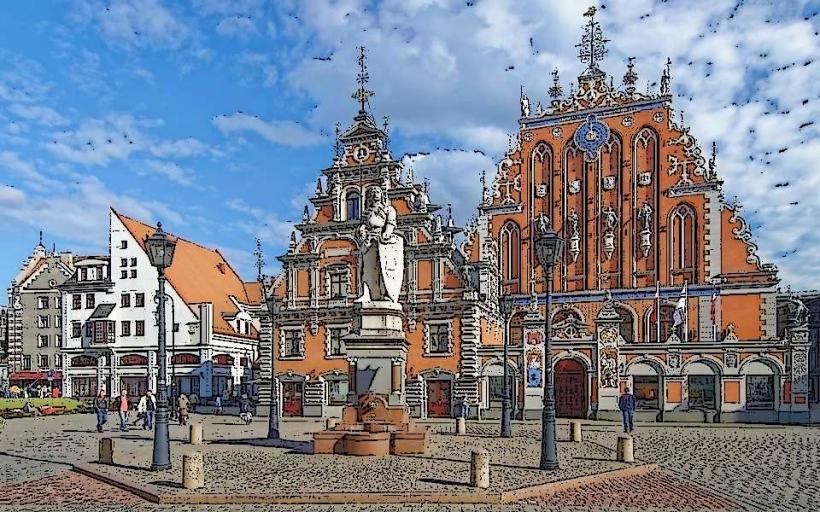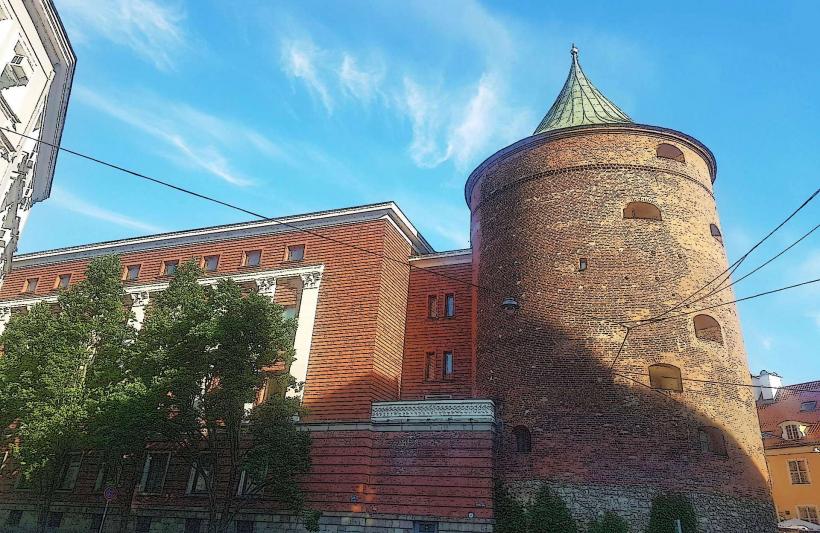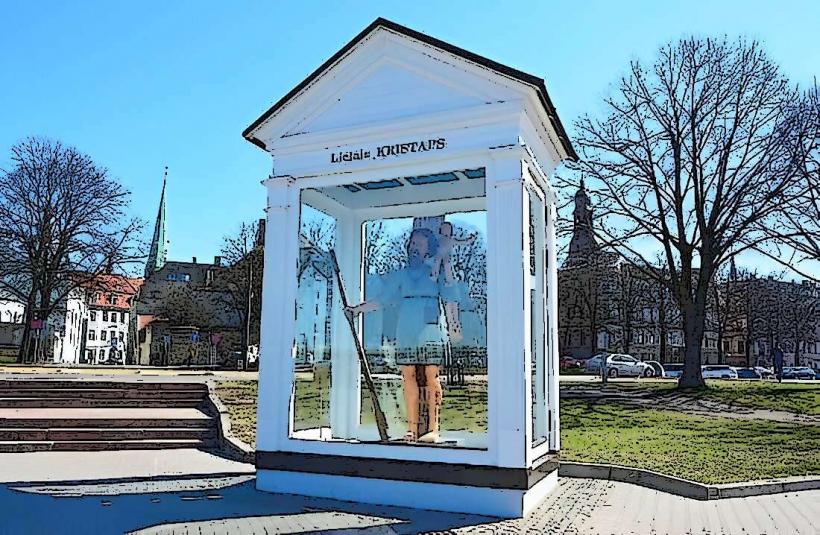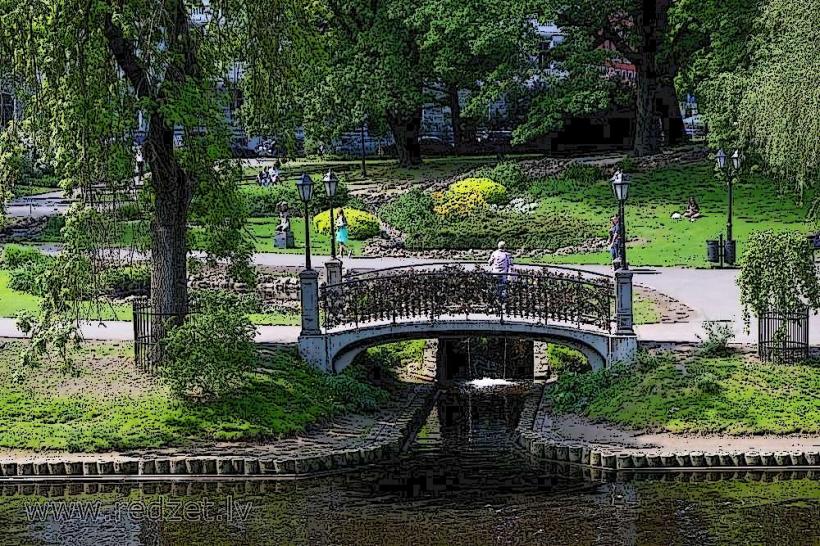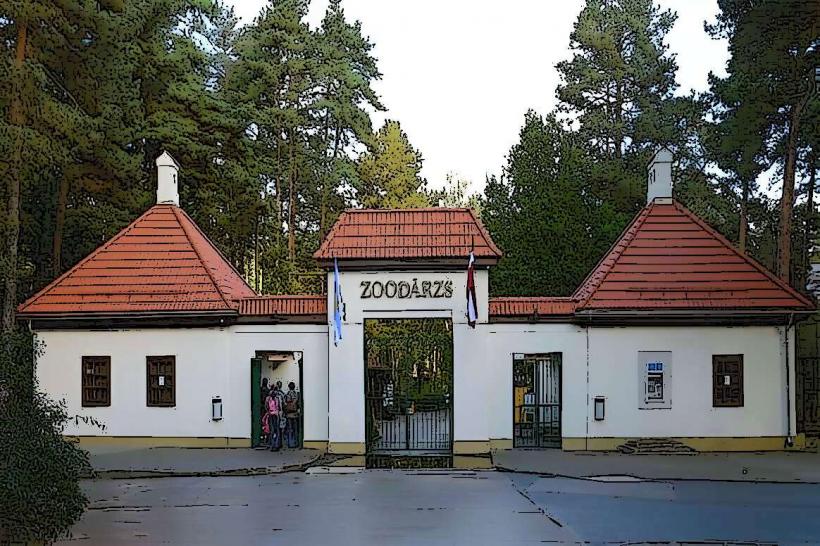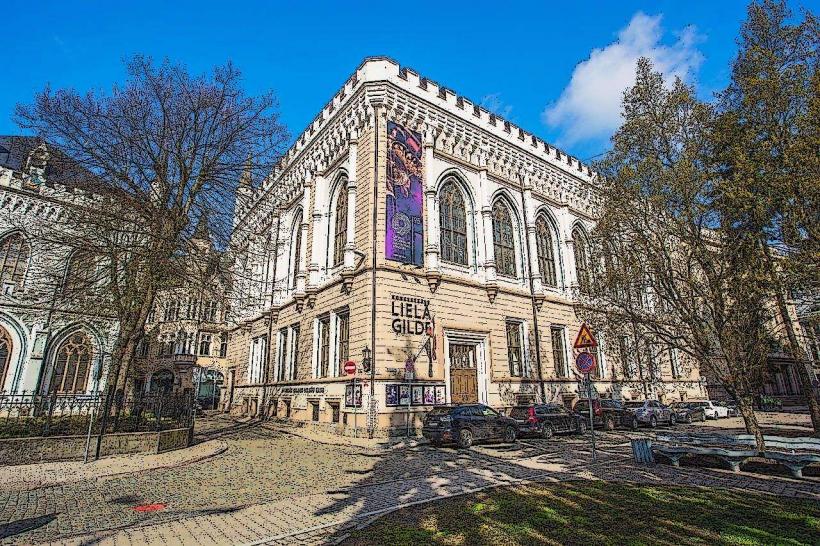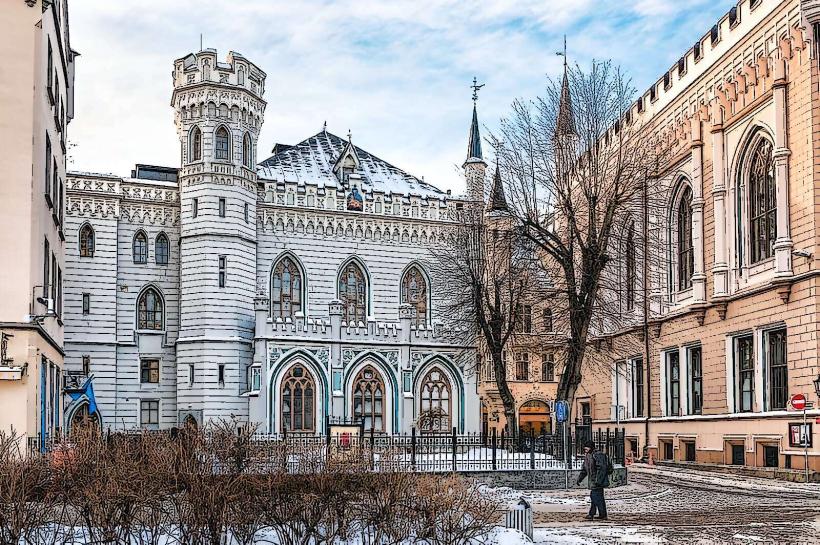Information
Landmark: Latvian Railway History MuseumCity: Riga
Country: Latvia
Continent: Europe
The Latvian Railway History Museum (Latvian: Latvijas Dzelzceļa Vēstures Muzejs) is a fascinating institution dedicated to the history of railways in Latvia. Located in Riga, the museum offers a comprehensive look at the evolution of the country's railway system, which has been an integral part of Latvia's development since the 19th century.
1. Historical Background:
- Founding:
The museum was established in 2002 by the Latvian Railway Company (Latvijas Dzelzceļš), but its roots trace back to the 1960s, when the first railway exhibits were collected and preserved. The museum’s purpose is to showcase the history, technology, and cultural significance of the railway network in Latvia and its role in shaping the country's economy and society. - Collection Focus:
The collection covers a broad span of railway history, from the construction of the first railway lines in the 19th century to the development of modern rail transport.
2. Museum Exhibits:
A. Historical Trains and Locomotives:
- Locomotives:
The museum displays a variety of historic locomotives, including steam, diesel, and electric models. Some of the oldest steam engines date back to the early years of railway construction in Latvia. - Rolling Stock:
The museum houses different types of railway cars, including passenger coaches, freight wagons, and specialty cars that served various purposes during the railway’s history. Some of the rolling stock was used for special purposes, such as transporting the elite or important political figures.
B. Railway Infrastructure Models:
- Track and Signaling:
The museum showcases models of railway track layouts and signaling systems used over the years. These models demonstrate how technological advancements in signaling and track construction improved the safety and efficiency of the railway network. - Stations and Terminals:
There are detailed models and exhibits illustrating the evolution of railway stations in Latvia, including architectural changes and their role in regional development.
C. Historic Documents and Photographs:
- The museum has a large collection of historical photographs, maps, and documents that show the development of the Latvian railway network, its role in the Russian Empire, and its significance in the Soviet era. This includes blueprints of early railway infrastructure and personal stories of railway workers.
D. Railway Equipment and Tools:
- The museum also displays a variety of tools and equipment used by railway workers throughout history, from early hand tools to mechanical devices used in maintenance and construction.
3. Key Areas of the Museum:
A. The Main Building:
- The museum's primary building is located near the Riga Central Railway Station, making it easy to access for visitors. Inside, you’ll find exhibits on the early years of railway construction, as well as the modernization of the rail system over time. The building includes sections dedicated to:
- The development of train technology, including steam engines, electric trains, and high-speed rail.
- The impact of railways on Latvian society, especially during periods of industrialization, war, and Soviet occupation.
B. The Open-Air Exhibition:
- The outdoor exhibition area is one of the museum's highlights, featuring large collections of historic locomotives, railcars, and rolling stock from different eras.
- Visitors can explore these vehicles up close, with many of them being restored and preserved in a state that allows guests to fully appreciate the design and engineering of the trains.
- Notable Pieces:
Among the most interesting pieces are Soviet-era locomotives, early 20th-century passenger cars, and military railway equipment used during the World War I and World War II periods.
4. Educational Programs and Activities:
- The museum offers a variety of educational programs for school groups, railway enthusiasts, and general visitors. These programs focus on:
- The history of rail transport in Latvia and its technological advancements.
- The impact of railways on the country’s economy and urban development.
- Workshops and Demonstrations:
Occasionally, the museum organizes live demonstrations of railway technology, including the operation of historical steam engines or model train setups.
5. Visitor Experience:
A. Interactive Exhibits:
- The museum offers a range of interactive exhibits where visitors can engage with the history of the railway system. These may include hands-on activities such as operating model trains or learning about the design and construction of railway engines.
B. Family-Friendly:
- The museum is an excellent destination for families, offering educational and entertaining activities for children, including model train exhibitions and interactive displays.
C. Museum Shop:
- The museum has a gift shop that sells a variety of railway-related merchandise, including books, souvenirs, models of trains, and other memorabilia related to Latvia’s railway history.
6. Practical Information:
- Location:
The museum is located at 11/13 Uzvaras Bulvaris, Riga, near the city center, making it easy to visit for both locals and tourists. - Opening Hours:
The museum is generally open Tuesday to Sunday, with specific seasonal opening hours. It is closed on Mondays. - Admission Fees:
Admission fees vary, with discounts for students, seniors, and groups. The museum often offers free entrance for children or during special events. - Accessibility:
The museum is easily accessible by public transportation (bus, trolleybus) or on foot from the central parts of Riga. There are also nearby parking facilities for those arriving by car.
7. Why Visit the Latvian Railway History Museum?
- Rich History:
The museum offers a comprehensive view of Latvia’s railway heritage, from its early days to the present, making it a valuable resource for history enthusiasts and those interested in Latvia's industrial evolution. - Unique Exhibits:
The museum's collection of historic locomotives, rolling stock, and railway tools is unmatched in its scope, offering a chance to see railway technology up close and learn about its development. - Cultural Significance:
The railway system has played a key role in shaping Latvia’s cultural, economic, and political landscape, and the museum provides insights into the ways railways have connected Latvia with the wider world.
8. Conclusion:
The Latvian Railway History Museum is a must-visit for anyone interested in the technological evolution of rail transport and its cultural impact on Latvia. With its fascinating collection of historical trains, locomotives, and artifacts, it offers a captivating journey through time, from the early steam engines to modern railway technology. Whether you’re a railway enthusiast, history buff, or just looking to learn more about Latvia’s industrial past, the museum provides an enriching and engaging experience.

